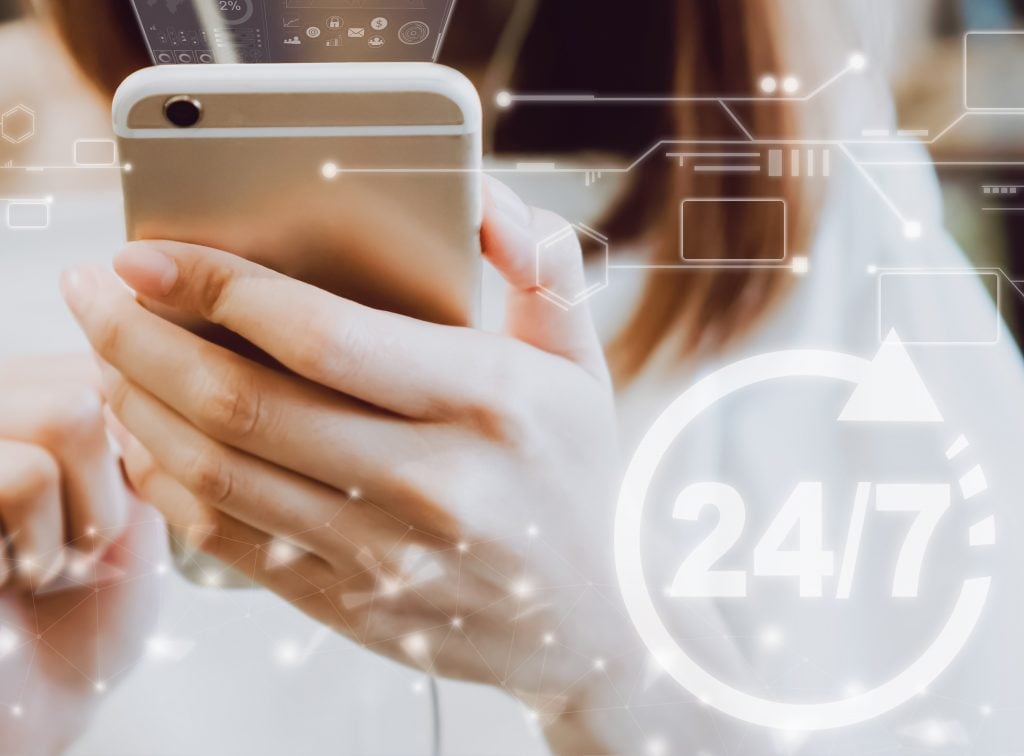Businesses that have employed Interactive Voice Response technologies for acceptance of payments are generally more familiar with an IVR solution that focuses on inbound calls. Inbound IVR Payments do a wonderful job at eliminating customer service time spent on the phone where they provide customers their invoice amounts and details about the receivables, then collecting payment information where they enter it into whatever payment origination software that they are using for processing.
With new technologies in the IVR sector, now outbound calls to customers can be made to even increase efficiency. With inbound alone, customers must rely on a separate technology for notifications on billing. Those notifications can come in the form of a mailed invoice or email notification. Those notifications, if opened, are most meaningful at the time they are read. As time goes by, those notifications can be forgotten or placed in the back of one’s mind. Those receivables are never in the back of the businesses minds. They expect payment remittance to be completed on the terms they set to their customers.
With outbound IVR, customers are called directly from the IVR Payment system. The customer is notified that they have an  outstanding receivable invoice and can be prompted to pay. There can be many uses for IVR outbound calls to collect payments, but one area of focus might be late payments – past due by way of terms of service. The outbound IVR calls can be a nice reminder for those customers who have forgotten about their invoice that is due – or who never opened the original notification.
outstanding receivable invoice and can be prompted to pay. There can be many uses for IVR outbound calls to collect payments, but one area of focus might be late payments – past due by way of terms of service. The outbound IVR calls can be a nice reminder for those customers who have forgotten about their invoice that is due – or who never opened the original notification.
SMS text messaging has become a way of life for many. There are a number of reasons why people love text messaging on a personal basis. From a business or organization’s point of view, they know text messages get read. Text messages are far more likely to get read than an email. Text messages don’t require an internet connection either. It’s also more personal than an email.
Businesses and organizations can now use SMS IVR technologies to route and deliver text messages to customers for notifications of outstanding or newly generated invoices. Customers receive a text message letting them know about an invoice and are prompted to reply with a merchant defined message. Once that reply message is received, an SMS notification can be generated and sent to the customer saying You will receive a call shortly about your invoice.An outbound IVR call is generated and the customer receives the details about their invoice where they can then remit the IVR payment.
The uses for outbound IVR Payments isn’t limited to invoices or late receivables. For businesses that sell online via their website, shopping cart abandonment is something they would like to eliminate by way of sale completion. SMS outbound IVR could be employed here. Assuming the business has captured the prospective customer’s mobile number, SMS notifications could be delivered to the customer saying something to the effect of “Hi John, You have unclaimed products in your ABCdotCom shopping cart. To complete your purchase and pay by phone, reply CHECKOUT.” Any uncompleted sale is a bonus for the company.
IVR Payments are not necessarily limited to credit card transactions. Some IVR Payment Gateway connections have the ability to also accept ACH (eCheck) transactions. Having the ability to accept payment via IVR Debit can go a long way for some organizations or businesses to reduce payment processing costs.
If you have an idea where you think IVR payment technology might be of help to your business or organization, contact us and walk us through your use case and we’ll do our best at trying to configure an IVR solution that meets your needs.
//





